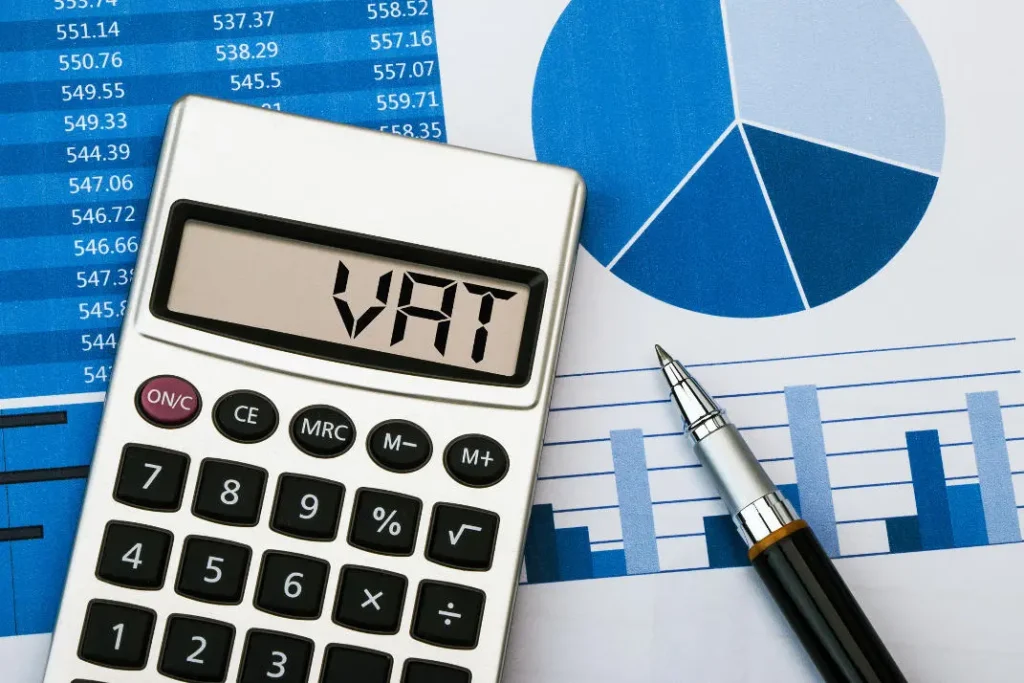Introduction
Gérer une entreprise en Thaïlande implique diverses dépenses, dont certaines peuvent être déduites pour alléger l'impôt sur le revenu des sociétés, conformément au code fiscal. Les entreprises peuvent également profiter d'exonérations fiscales sur les dividendes versés entre entreprises thaïlandaises qualifiées, grâce aux conventions de double imposition ou aux promotions du Bureau de l'investissement. Pour ce faire, il est souvent recommandé de se faire accompagner par un comptable en Thaïlande ou un expert comptable.
Comprendre les déductions et exonérations disponibles est nécessaire pour minimiser la charge fiscale d'une entreprise. Cet article explore les différentes dépenses déductibles pour les entreprises opérant en Thaïlande, offrant ainsi des outils essentiels pour optimiser leur fiscalité.
Points clés
- En Thaïlande, les dépenses professionnelles déductibles incluent l'amortissement, les créances irrécouvrables, les dons et d'autres éléments décrits dans le code des impôts. Une documentation appropriée est indispensable.
- Les dividendes versés entre sociétés thaïlandaises éligibles (où la société mère détient au moins 25 % des actions pendant au moins 6 mois) sont exonérés de l'impôt sur le revenu des sociétés.
- Les entreprises peuvent bénéficier de taux d'imposition réduits ou d'exonérations fiscales grâce aux conventions de double imposition conclues par la Thaïlande avec d'autres pays.
- Le Bureau de l'investissement offre des exonérations fiscales pouvant aller jusqu'à 8 ans et d'autres incitations, comme des exemptions de droits, pour les entreprises promues et éligibles.
Quelles sont les dépenses déductibles pour les entreprises en Thaïlande ?
En Thaïlande, les dépenses déductibles permettent aux entreprises de réduire leur revenu imposable, diminuant ainsi le montant de l'impôt sur le revenu des sociétés à payer. Un comptable en Thaïlande peut vous aider à interpréter ces règles et à préparer correctement vos documents pour éviter tout risque de redressement fiscal.
Le code fiscal thaïlandais établit des règles et des limites précises pour ces déductions. Les entreprises doivent fournir une documentation rigoureuse et se conformer aux normes comptables lorsqu'elles demandent des déductions dans leur déclaration annuelle d'impôt sur le revenu des sociétés. Cette démarche permet à la fois d’optimiser les avantages fiscaux et d’assurer le respect des réglementations en vigueur.
Qu'est-ce qui peut être considéré comme une dépense déductible ?
En pratique, toute dépense engagée par une entreprise dans le but exclusif de générer un revenu ou une activité peut être déduite du calcul de l'impôt. Cependant, l'article 65 du code fiscal exclut certaines dépenses de cette déduction.
Voici quelques exemples de déductions auxquelles peuvent prétendre les entreprises thaïlandaises :
Petite caisse
Les dépenses de petite caisse (moins de 1 000 THB par transaction) peuvent être considérées comme déductibles. Cependant, si une entreprise multiplie excessivement les demandes de remboursement pour ces dépenses, elles risquent d'être refusées et non déduites des comptes.
Frais de représentation
Les frais de représentation, incluant les dépenses pour la nourriture et les boissons, sont déductibles du revenu brut d'une entreprise. Toutefois, leur déduction totale est limitée à 0,3 % des recettes brutes, des ventes brutes ou du capital libéré, selon le montant le plus élevé pour une période comptable. De plus, la déduction des frais de représentation ne peut pas dépasser 10 millions de THB au total.
Prenons comme exemple, si votre entreprise a un capital social de 2 000 000 THB et un revenu annuel de 6 000 000 THB, les frais de représentation maximums que votre entreprise peut déduire sont les suivants :
Dans ce cas, étant donné que le revenu annuel est de 6 000 000 THB et qu'il est supérieur au capital social, l'entreprise pourra déduire jusqu'à 0,3 % de 6 000 000 THB.
0.3% x 6,000,000 = 18,000 THB.
Par conséquent, l'entreprise pourra déduire 18 000 THB de sa déclaration de l’Impôt sur le revenu des sociétés au titre des frais de représentation.
Report des pertes
Une entreprise a la possibilité de reporter ses pertes d'exploitation sur cinq exercices comptables pour les déduire de ses bénéfices futurs. Il est important de souligner qu'aucune disposition n'autorise le report des pertes sur des exercices comptables antérieurs.
Déduction pour amortissement
La réglementation fiscale thaïlandaise offre une flexibilité quant à la méthode comptable utilisée pour calculer l'amortissement, tant qu'elle est généralement acceptée. Cependant, les taux d'amortissement sont limités par les directives du décret royal émis en vertu du code des revenus (n° 145)..
Dans certains cas, un amortissement accéléré peut être autorisé, notamment pour les caisses enregistreuses et les équipements utilisés dans des projets de recherche et développement technologique.
Les autobus d'une capacité maximale de 10 passagers ou les voitures particulières peuvent également bénéficier d'un amortissement, mais seulement jusqu'à concurrence de 1 000 000 de bahts thaïlandais pour la partie de la valeur du coût excédant ce montant.
Frais d'intérêt
Si une entreprise a contracté des emprunts ou des dettes par le biais de cartes de crédit, elle peut déduire les intérêts payés sur ces montants. Les intérêts accumulés sur les prêts utilisés pour l'acquisition de matériel ou d'autres actifs, ainsi que les intérêts sur les soldes de cartes de crédit utilisées pour les besoins opérationnels de l'entreprise, sont également éligibles à cette déduction.
Location
Si une entreprise opte pour la location de biens, les frais de loyer sont déductibles de ses dépenses. Les biens éligibles englobent les bureaux, les entrepôts et d'autres biens commerciaux.
Dépenses de l'entreprise
Tous les frais professionnels, qu'il s'agisse d'achats de fournitures de bureau, de frais de déplacement ou de dépenses de publicité, peuvent être déduits du revenu imposable.
Réserves
Les réserves formées à partir des primes d'assurance, ainsi que celles constituées pour faire face aux créances douteuses ou irrécouvrables découlant des prêts accordés par les banques, les sociétés de financement et de valeurs mobilières ou les établissements de crédit foncier, sont admissibles à la déduction. Cependant, les autres types de provisions ne sont pas déductibles.
Contribution à des fonds
Toute contribution versée par l'entreprise à un fonds de prévoyance pour ses employés, conformément aux règlements ministériels en vigueur, est considérée comme une dépense déductible.
Créances irrécouvrables
Les créances irrécouvrables peuvent être déductibles en tant que dépense, mais l'entreprise doit se conformer aux réglementations en vigueur pour bénéficier de cette déduction. Pour en savoir plus sur la manière d'annuler les créances irrécouvrables, consultez cet article .
Dons
Les dons faits à des organismes de bienfaisance publics peuvent être déduits jusqu'à concurrence de 2 % des bénéfices nets de l'entreprise. De plus, des déductions sont autorisées pour les dons en faveur de l'éducation ou du sport, dans la limite de 2 % des bénéfices nets.
Frais de déplacement
En ce qui concerne les frais de déplacement déclarés, l'auditeur chargé de l'audit annuel de la société et/ou le service des impôts partiront généralement du principe que le voyage a été effectué à des fins récréatives plutôt que professionnelles. Par conséquent, l'entreprise devra démontrer deux points essentiels :
- Que le voyage était effectivement lié aux activités de l'entreprise.
- Que toutes les dépenses engagées lors du voyage étaient raisonnables et remboursées au prix coûtant.
Si l'entreprise ne peut pas prouver ces deux points, les frais de voyage réclamés peuvent être ajoutés à son bénéfice net, entraînant un nouveau calcul de l'impôt sur les sociétés et éventuellement un paiement supplémentaire d'impôts.
Pour plus d'informations sur les frais de déplacement déductibles et sur la manière de procéder à ces déductions, je vous invite à consulter cet article.
Comment une entreprise peut-elle déduire des dépenses ?
En Thaïlande, plusieurs documents justificatifs sont nécessaire pour déduire des dépenses à des fins fiscales. Voici quelques-uns des documents les plus courants :
Factures fiscales
Ces documents constituent la pièce maîtresse pour déduire des dépenses. Les factures ou reçus doivent comporter la date, les détails des biens ou services achetés, le nom, le numéro d'identification fiscale et l'adresse de l'acheteur et du vendeur, ainsi que le montant payé.
Certificats de retenue à la source
Si vous avez effectué une retenue à la source sur certaines dépenses, comme des honoraires professionnels ou des loyers, vous aurez besoin des certificats de retenue à la source des bénéficiaires pour demander des déductions.
Fiches de paie
Pour déduire les salaires et les avantages sociaux des employés, vous devez conserver des registres de paie, y compris des fiches de salaire, des registres de cotisations de Sécurité sociale et des registres de cotisations à des fonds de prévoyance.
Contrats ou accords
Si vous déduisez des dépenses liées à des contrats ou des accords, comme des contrats de location ou de service, vous pourriez devoir fournir des copies de ces documents à titre de preuve.
Il est important de noter que les pièces justificatives requises peuvent varier en fonction du type de dépense et des réglementations fiscales en vigueur à ce moment-là.
Quelles sont les dépenses non déductibles ?
Selon l'article 65 ter du Code des impôts, les éléments suivants sont classés comme dépenses non déductibles :
- Les dépenses personnelles et les cadeaux.
- Les pénalités fiscales, les majorations et les amendes pénales prévues par le code des impôts.
- Les dépenses artificielles ou fictives.
- La contrepartie des biens possédés et utilisés par l'entité juridique.
- Les intérêts sur le capital, les réserves ou les fonds de l'entité juridique.
- Tout dommage récupérable en vertu d'une assurance ou d'un contrat d'indemnisation.
- Tout déboursement dont l'identité du destinataire ne peut être prouvée par le payeur.
- La partie du prix d'achat des biens immobiliers et les dépenses liées à l'achat ou à la vente de biens immobiliers qui dépassent un montant raisonnable.
Qu'est-ce que les dépenses supplémentaires ?
Les dépenses supplémentaires désignent les coûts enregistrés dans les registres comptables d'une entreprise, mais non autorisés comme déductions pour le calcul des bénéfices nets à des fins fiscales. La section 65 Ter du code fiscal thaïlandais précise quelles dépenses ne peuvent pas être déduites. Ces dépenses doivent être ajoutées aux bénéfices dans la déclaration d'impôt.
Ne pas inclure ces dépenses dans la déclaration d'impôt peut entraîner des inexactitudes et des pénalités potentielles imposées par le ministère des Finances.
Lire aussi : Comment émettre une facture ou un reçu fiscal en Thaïlande ?
Dépenses non admises en déduction
Selon le code fiscal thaïlandais, plusieurs dépenses ne peuvent être déduites du calcul des bénéfices nets. Ces dépenses sont les suivantes
Réserves
Les réserves, à l'exception de types spécifiques tels que les réserves de primes d'assurance pour l'assurance-vie et d'autres assurances, et les réserves pour créances irrécouvrables ou présumées irrécouvrables.
Fonds
Les dépenses liées aux fonds, à l'exception des fonds de prévoyance en vertu des règles et des règlements prescrits par les règlements ministériels.
Dépenses personnelles, de cadeaux ou de bienfaisance
Les dépenses à des fins personnelles, de dons ou de bienfaisance, à l'exception de celles destinées à des œuvres de bienfaisance publique ou d'intérêt général, sont déductibles jusqu'à 2 % du bénéfice net. De plus, les dépenses liées à l'éducation ou aux sports, approuvées par le directeur général et le ministre, peuvent également être déduites à hauteur de 2 % du bénéfice net.
Frais de divertissement ou de service
Pour les frais de divertissement ou de service qui ne respectent pas les règles suivantes, la déduction totale des frais de divertissement ne doit pas dépasser 0,3 % du total des recettes brutes ou des ventes brutes, ou du capital libéré, selon le montant le plus élevé, au cours d'une période comptable. En outre, le total des frais de représentation autorisés à être déduits ne doit pas dépasser 10 millions de THB.
Dépenses d'investissement
Les dépenses pour l'ajout, le changement, l'expansion ou l'amélioration d'un actif, à l'exclusion des dépenses pour les réparations visant à maintenir son état actuel.
Amendes et surtaxes
Les amendes, les surcharges, les amendes pénales et l'impôt sur le revenu d'une société ou d'une société de personnes.
Salaire excessif d'un actionnaire ou d'un associé
Si un actionnaire ou associé perçoit un salaire excessif, le fisc peut contester ce montant et ajouter la partie excédentaire aux comptes comme non déductible. Un salaire est considéré excessif lorsque le montant versé à l'actionnaire ou à l'associé est disproportionné par rapport aux revenus de l'entreprise. Cela signifie que toute différence jugée excessive sera réintégrée dans les comptes, affectant ainsi la déductibilité des dépenses.
Dépenses non réalisées ou différées
Dépenses qui ne sont pas réellement encourues ou qui auraient dû être payées au cours d'une autre période comptable, sauf dans certains cas où elles ne peuvent être comptabilisées dans aucune période comptable.
Rémunération des actifs appartenant à l'entreprise
Rémunération des actifs appartenant à l'entreprise et utilisés par elle. Par exemple, tout article acheté par les administrateurs ou les actionnaires de la société pour leur usage personnel et non pour entreprendre des activités commerciales.
Intérêts versés aux capitaux propres, aux réserves ou aux fonds
Intérêts versés aux capitaux propres, aux réserves ou aux fonds de l'entreprise.
Dommages-intérêts dus à l'assurance
Dommages-intérêts résultant de contrats d'assurance ou d'autres contrats de protection, ou pertes de périodes comptables antérieures, à l'exception des pertes nettes reportées sur une période spécifique.
Dépenses non professionnelles
Dépenses qui n'ont pas pour but de faire des profits ou de servir l'entreprise.
Dépenses non professionnelles en Thaïlande
Dépenses qui ne sont pas destinées à l'exercice d'une activité professionnelle en Thaïlande.
Coûts excessifs d'achat d'actifs
Les coûts liés à l'achat ou à la vente d'actifs qui dépassent les coûts et dépenses normaux sans raison valable.
Ressources naturelles perdues ou épuisées
Valeur des ressources naturelles perdues ou épuisées en raison de l'exercice de l'activité.
Actifs non dévalués
La valeur des actifs, à l'exception de ceux soumis à des dispositions spécifiques de dévaluation, est évaluée sur la base de leur prix d'achat normal. Si un actif bénéficie d'une plus-value, celle-ci n'est pas incluse dans le calcul du bénéfice net ou de la perte nette.
Bénéficiaires non identifiés des dépenses
Dépenses pour lesquelles le payeur ne peut pas identifier le bénéficiaire. Par exemple, si une entreprise fait appel à un tiers pour l'aider dans le processus de manière non officielle ou sans contrat ou accord approprié.Veuillez noter que, dans un tel cas, la jurisprudence thaïlandaise souligne que les tribunaux autorisent la déduction d'un tel paiement si les éléments suivants peuvent être fournis :
- La preuve du paiement
- Des témoins qui peuvent prouver que la dépense a été reçue par une personne réelle et qu'il ne s'agit pas d'une fausse déclaration.
Dépenses postérieures à la période comptable
Toute dépense payable sur les bénéfices perçus après la fin d'une période comptable. Veuillez noter qu'en Thaïlande, la plupart des entreprises choisissent de clôturer leur exercice financier le 31 décembre.
Voici quelques exemples de dépenses payables sur des bénéfices perçus après la fin d'une période comptable :
- Primes à payer aux employés
- Dividendes à verser aux actionnaires
Autres dépenses prescrites
Dépenses similaires à celles spécifiées ci-dessus, telles que prescrites par un décret royal.
Nos réflexions
Il est important pour les entreprises opérant en Thaïlande de comprendre les exigences en matière de dépenses déductibles et de savoir ce qui peut être déduit. Les entreprises doivent se conformer à la réglementation fiscale et s'assurer que toutes les déductions sont admissibles.
Contrairement à d'autres pays, la Thaïlande impose de nombreuses restrictions sur les déductions des dépenses. Les entreprises doivent fournir une documentation complète et correctement remplie pour pouvoir procéder à ces déductions. Toute erreur ou omission dans les documents entraîne leur rejet, empêchant ainsi la déduction des dépenses. Les comptables peuvent refuser des documents incorrects, et les auditeurs les signaleront lors des contrôles annuels. De plus, en cas d'enquête fiscale, ces demandes non conformes seront réintégrées dans le revenu imposable.
Il est donc essentiel que les entreprises thaïlandaises soient bien informées de ces exigences et conservent soigneusement tous les justificatifs nécessaires.
Vous recherchez un cabinet comptable en Thaïlande ? Vous pouvez nous contacter pour obtenir une consultation avec l'un de nos experts fiscaux.





